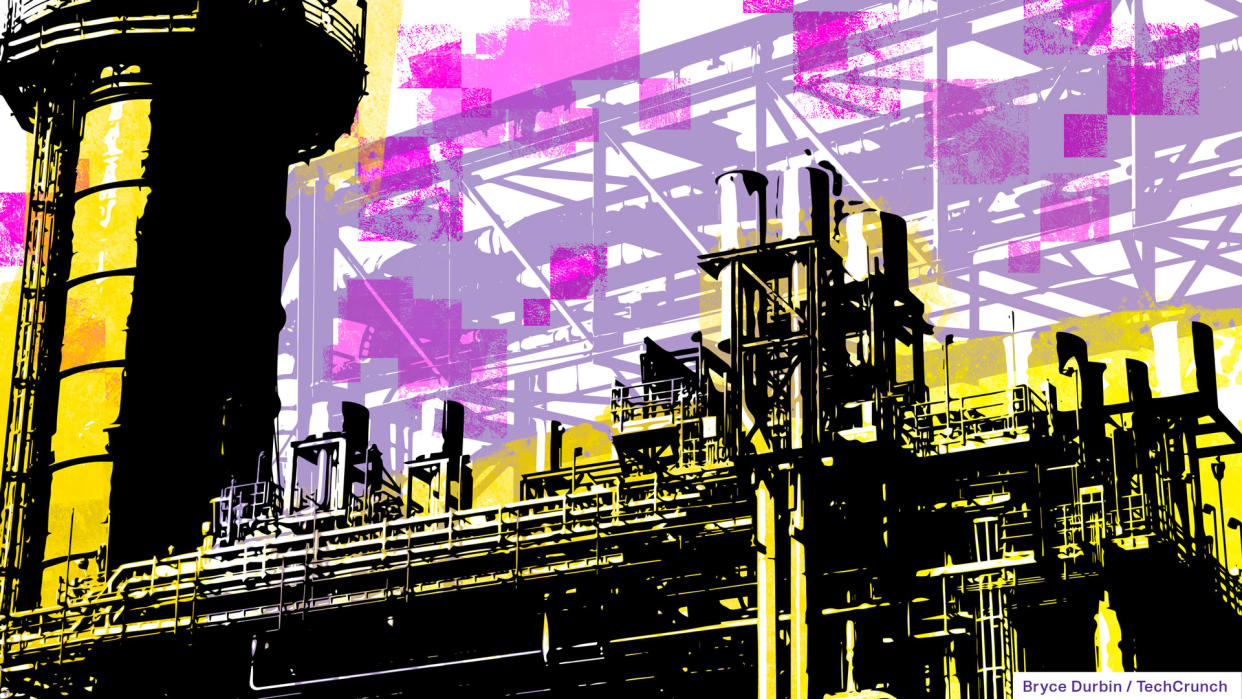Allie wants to layer intelligence on top of factory floors

Factory downtime is an expensive problem. According to one estimate, it costs enterprise companies 11% of their yearly turnover, amounting to almost $1.5 trillion each year. That works out to about $129 million per facility among Fortune 500 companies, over double what Fortune 500 companies reported paying in downtime in 2020.
Part of the reason downtime is occurring so frequently -- and becoming more common -- is because factories often lack a single source of truth, depriving them of the insights needed to make quick decisions about their operations.
To solve this problem, entrepreneurs Alex Sandoval and Nicolas DeGiorgis, who met a Rappi, the Latin America-based delivery app, founded Allie AI, which presented onstage during the TechCrunch Disrupt Battlefield competition today. Allie brings monitoring and analysis to factory data, delivering a level of visibility that's usually absent in the industrial and manufacturing sector.
"It all started during the pandemic," Sandoval told TechCrunch in an email interview. "One of our family friends asked me to serve as an advisor to support the family factory’s digitization initiatives, and I was surprised to see pen and paper being used for basic stats such as efficiency and machine monitoring. This was not an isolated case."
Sandoval and DeGiorgis saw an opportunity to bring industrial data together, using modeling, and combine it with a streamlined dashboard experience for factory operators and managers to drive efficiency. They built a proof of concept, and this eventually morphed into Allie -- which went on to raise $2.3 million in venture capital.
"Industrial operations typically have siloed and disconnected data sitting between an enterprise resource planning platform, a maintenance system and a factory floor monitor," Sandoval said. "Factories need to centralize data sources to be able to identify patterns that lead to quality issues or downtime, so that technical departments can build intelligent layers for business and operations leaders to make smarter decisions to maximize productivity."
To this end, Allie provides a configurable hub that connects to machines and sensors new and old within a factory. The gateway enables Allie to build a "digital layer" on top of the factory's processes and hardware, Sandoval says, and identify factors tied to productivity, quality costs and machine health and store all this data in a secure cloud.
Allie allows factories to run root cause analyses that take into account metrics like operational efficiency, product wastage and costs across lines and production facilities. The platform also automates maintenance workflows, leveraging AI to attempt to predict when a machine might fail -- and ways to prevent this.
A newer addition to the Allie platform is a chatbot-like assistant along the lines of ChatGPT. Trained on a factory's productivity data, factory manuals and procedure documentation, the assistant can serve up information such as the most frequent component failures and instructions on how to perform specific preventative maintenance tasks.
"Allie gets smarter the more you use it," Sandoval said. "Every single report and root cause is tagged into our model, enabling customers to make correlations between machine variables and failure types. Because every corrective action is traced on the platform, we're able to give probable root causes and a recommended course of action. Years of factory know-how live on in the system -- sharing the knowledge for all factory operators."
Allie doesn't stand alone in the market for digitizing and operationalizing factory data. See ControlRooms.ai, which recently raised $10 million for its AI-powered analytics platform designed to automate the industrial troubleshooting process. Elsewhere, there's Augury, which is building hardware, AI and software to diagnose malfunctions in machinery; Traction offers a comparable tech solution.
Sandoval has confidence in Allie's go-to-market approach, though, which will initially focus on manufacturing customers in the cement, steel, food and beverage, plastics and paper industries. With a team of 25 full-time employees and 50 contractors, Allie plans to invest in further developing its tech -- specifically the recommendation engine that powers much of the Allie platform -- and product.
"Allie is working with 30 of the largest industrial facilities in the Americas, which manufacture products worth $30 billion in annual production," Sandoval said. "The pandemic has been positive in some ways for Allie. It helped catalyze the need to run cloud-based industrial operations when there was difficulty with physical mobility. This helped increase IT budgets for industrial players."
Lucas Limas from Caravela Capital, an Allie investor, added via email: "We believe the time for Allie is now. There's a strong migration of industrial operations from China to Mexico, one of Allie’s main markets, which is going to be transformational for the country’s GDP in the coming years. We're excited about Allie’s traction, who in a short time, have been able to sell to the region’s leading manufacturers."


